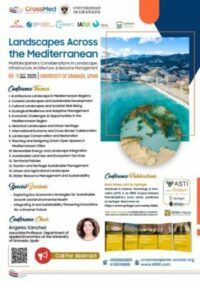ISSN (online): 2624-6511
Call of the Journal:
Mar
2021
Apr
2021
The validity of any city claiming to be a smart city has to be based on something more than its use of data and information and communication technologies (ICTs). ICTs are important because they allow cities to empower and educate their citizens so that they can engage, with businesses and government, in a debate about their own environment. Smart cities are smart because they use ICTs to leverage the creative potential of businesses, citizens, and governments in the development of solutions to modern urban challenges. These challenges cannot be addressed by local governments alone. They can plan and initiate and promote, but in the end, a smart city needs its citizens to adopt and co-create, while the solutions developed need to be sustainable in an ecological and social but also economic sense. Therefore, new business models need to be introduced in the smart city to enable a sustained delivery of new services to its citizens. Based on an extensive survey of the business model literature Zott, Amt and Massa (2011) concluded: “Specifically, (1) the business model is emerging as a new unit of analysis; (2) business models emphasize a system-level, holistic approach to explaining how firms “do business”; (3) firm activities play an important role in the various conceptualizations of business models that have been proposed; and (4) business models seek to explain how value is created, not just how it is captured”. In the smart city context, the holistic approach and focus on value creation makes business models a useful unit of analysis. In Giourka et al. (2019), a smart city business model canvass was proposed that maps out the many aspects of such business models. In this Special Issue, we hope to collect papers that help us to understand business model creation for smart cities that comes with a series of challenges including: What type of value can and should the smart city create; economic, social, relational, public? How can the smart city capture this value and distribute it equitably among the various stakeholders in the city? How are businesses to determine which new services to develop and which business models to adopt? How can ICTs and data platforms be helpful in addressing these challenges? Thus, the advancement of our understanding of smart cities and smart city business model development is not just a question of implementing smart technology. It is essentially a multidisciplinary effort drawing on domains such as urban studies, social studies, political science, and economics. We explicitly invite contributions that take such trans-, cross-, and interdisciplinary approaches and are open to a broad variety of methods and topics.
Keywords: Business models; Smart cities; Urban development; Sustainability; Transition; Entrepreneurship.
Global business models of smart and sustainable cities
The validity of any city claiming to be a smart city has to be based on something more than its use of data and information and communication technologies (ICTs). ICTs are important because they allow cities to empower and educate their citizens so that they can engage, with businesses and government, in a debate about their own environment. Smart cities are smart because they use ICTs to leverage the creative potential of businesses, citizens, and governments in the development of solutions to modern urban challenges. These challenges cannot be addressed by local governments alone. They can plan and initiate and promote, but in the end, a smart city needs its citizens to adopt and co-create, while the solutions developed need to be sustainable in an ecological and social but also economic sense. Therefore, new business models need to be introduced in the smart city to enable a sustained delivery of new services to its citizens. Based on an extensive survey of the business model literature Zott, Amt and Massa (2011) concluded: “Specifically, (1) the business model is emerging as a new unit of analysis; (2) business models emphasize a system-level, holistic approach to explaining how firms “do business”; (3) firm activities play an important role in the various conceptualizations of business models that have been proposed; and (4) business models seek to explain how value is created, not just how it is captured”. In the smart city context, the holistic approach and focus on value creation makes business models a useful unit of analysis. In Giourka et al. (2019), a smart city business model canvass was proposed that maps out the many aspects of such business models. In this Special Issue, we hope to collect papers that help us to understand business model creation for smart cities that comes with a series of challenges including: What type of value can and should the smart city create; economic, social, relational, public? How can the smart city capture this value and distribute it equitably among the various stakeholders in the city? How are businesses to determine which new services to develop and which business models to adopt? How can ICTs and data platforms be helpful in addressing these challenges? Thus, the advancement of our understanding of smart cities and smart city business model development is not just a question of implementing smart technology. It is essentially a multidisciplinary effort drawing on domains such as urban studies, social studies, political science, and economics. We explicitly invite contributions that take such trans-, cross-, and interdisciplinary approaches and are open to a broad variety of methods and topics.
Keywords: Business models; Smart cities; Urban development; Sustainability; Transition; Entrepreneurship.
Inspec (IET), CLOCKSS (Digital Archive), e-Helvetica (Swiss National Library Digital Archive), Academic OneFile (Gale/Cengage Learning), Google Scholar, J-Gate (Informatics India), Science In Context (Gale/Cengage Learning).
Info at: www.mdpi.com/journal/smartcities/apc
Guest Editors
Prof. Dr. Mark Sanders
Prof. Dr. Susanne Ollila










